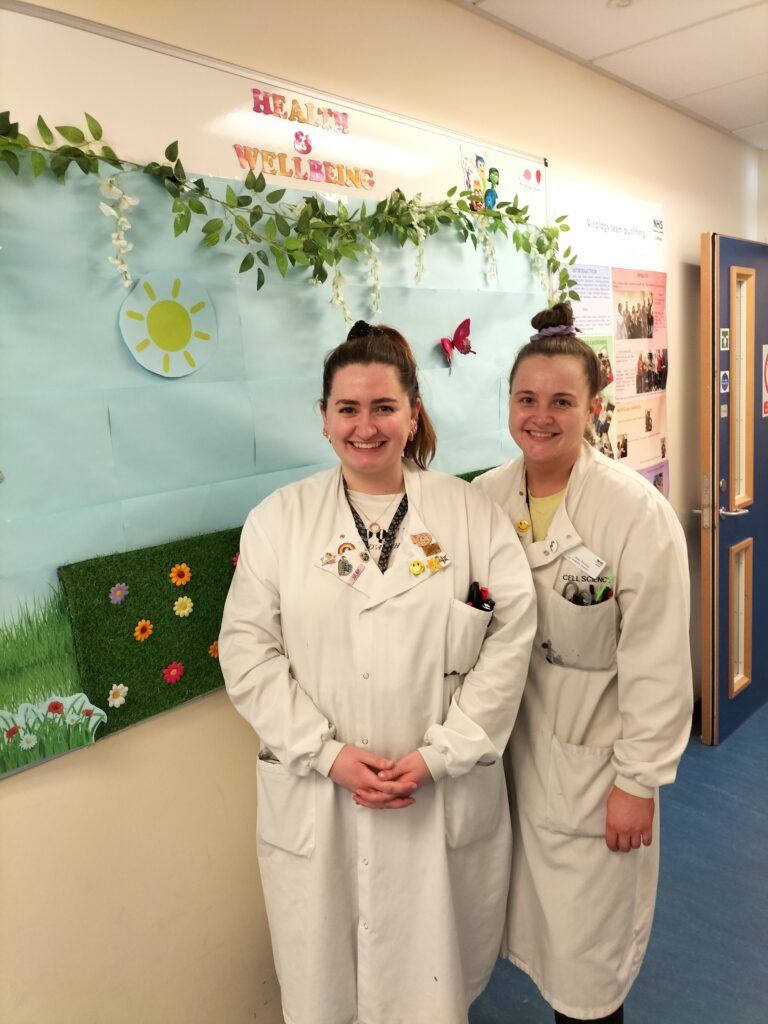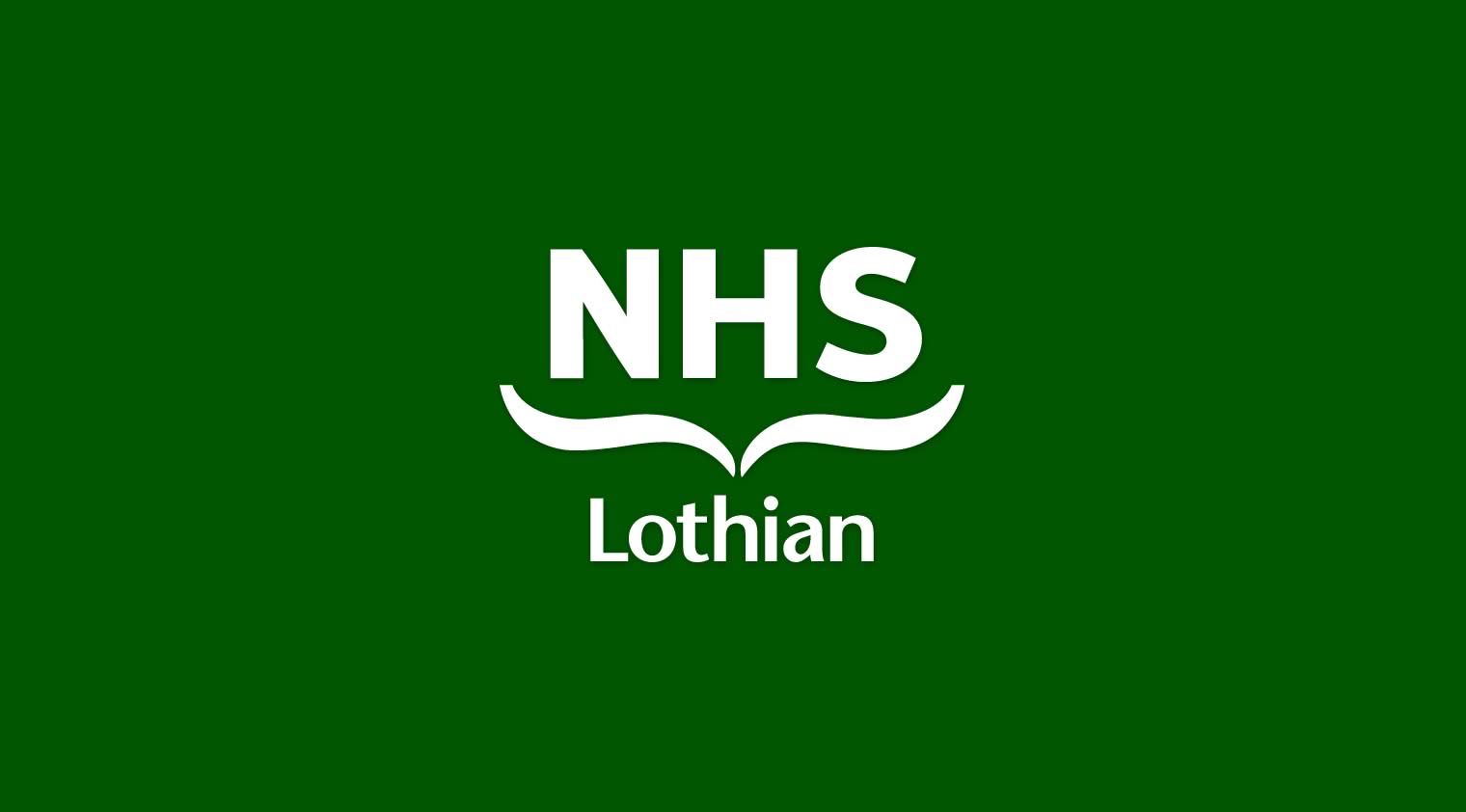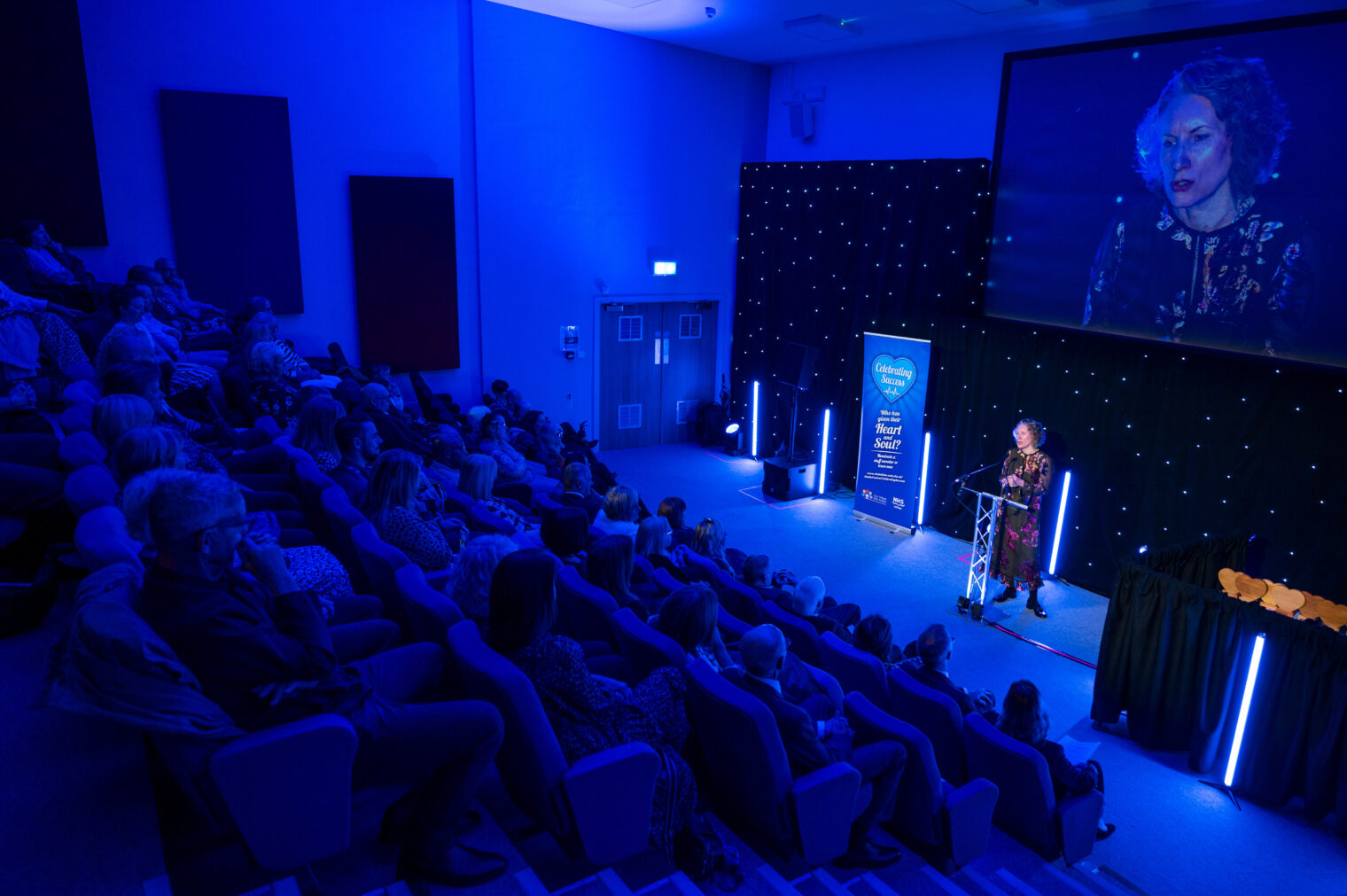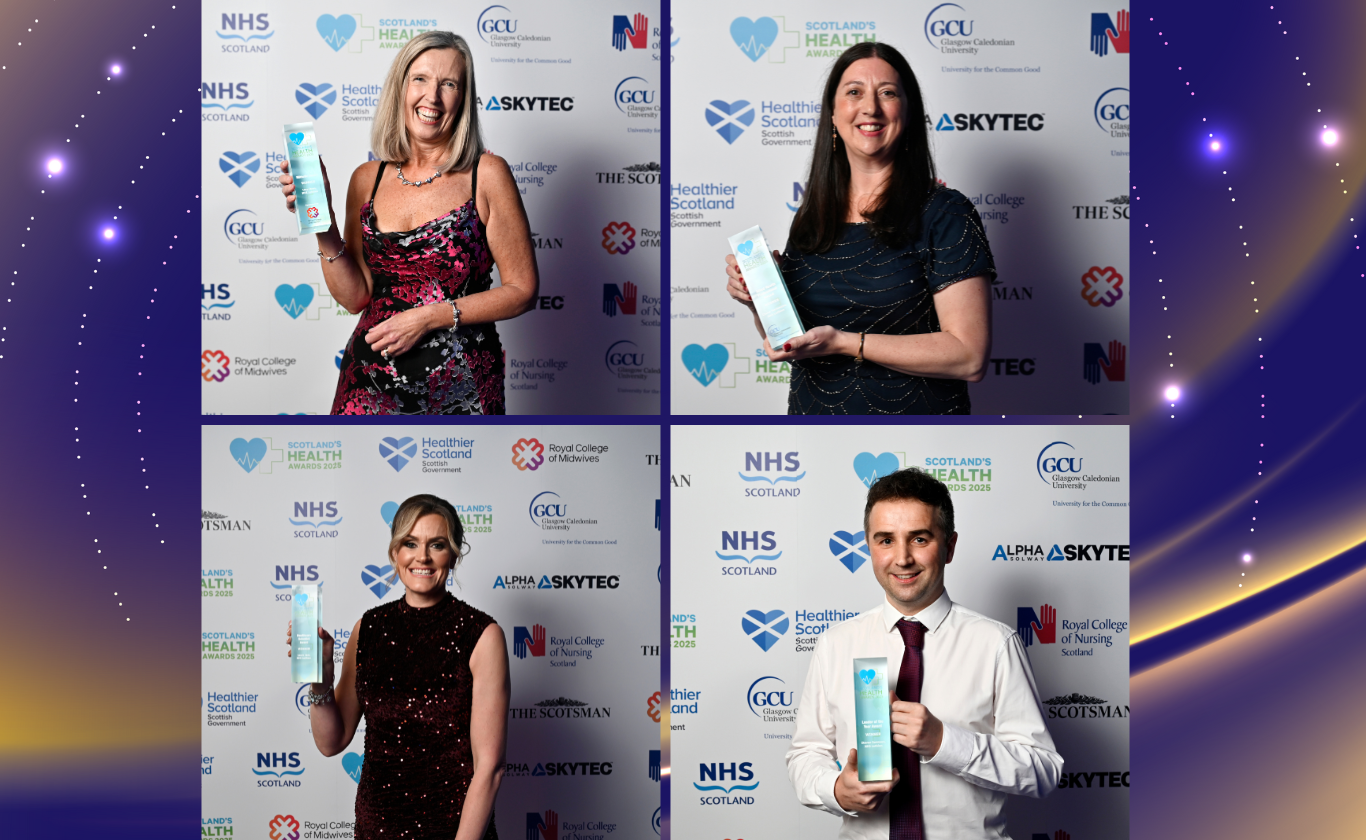We’ve caught up with our amazing laboratory staff, in the Royal Infirmary of Edinburgh, for Biomedical Science Day (Thursday 8 June). Along with staff from the Microbiology department, our virology staff have also given us an insight into the tasks they carry out day to day.
Amy Purves
What is it you do in your day to day job?
My job involves testing patient samples for different viruses. This is done on many different sample types such as throat swabs, sputum and stool samples. I am also involved in the day-to-day running of the lab ensuring that samples are being extracted in time for the Polymerase chain reaction (PCR), runs. I am also a part of the on-call team which involves testing donor samples and samples querying Viral Haemorrhagic Fever. I’m also on hand to communicate with consultants and clinical scientists for any advice or any queries which they may have.
How did you get into the role?
I completed my accredited honours degree in 2018 but was unsuccessful in several interviews due to my limited lab experience. I obtained a Band 3 position in specimen reception at Wishaw General in 2019. I was then successful in getting a temporary trainee Band 5 post at the Royal Infirmary of Edinburgh in November 2020 and was made permanent in October 2021. In September 2022, I completed my registration portfolio and in December 2022 I obtained a Band 6U, Trainee Specialist Biomedical Scientist post and now am currently working towards my specialist portfolio.
What’s the best part of your job?
I like that no day is ever the same. We are faced with different challenges each day. I also work with a great team who will help each other out and also have a laugh amongst each other which boosts staff morale.
Julia McGeachy
What is it you do in your day to day job?
We are a diagnostic lab, so we test patient samples for a multitude of different viruses and report the results. I am also a part of an on-call service, which requires us to come in to test urgent donor samples, as well as the Scottish National Viral Haemorrhagic Fever Test Service (SNVTS).
How did you get into the role?
I didn’t have an accredited degree, so I had to completesupplementary education modules . I completed these before I started working for the NHS, while I worked on getting my masters. I started as a Band 4 in March 2020 and with the experience I gained throughout the COVID-19 pandemic had the opportunity to progress to a Band 5. I was then able to complete my Institute of Biomedical Sciencregistration portfolio and become a registered Biomedical Scientist. I am now completing my specialist portfolio in virology while working as a Band 6U.
What’s the best part of your job?
Being able to assist with donors and knowing this helps in the process of saving lives, as well as just generally helping assist with other diagnoses.
Marianne Cunningham
What is it you do in your day-to-day job?
My day-to-day job in the Virology lab includes running a variety of tests for Microbiology, most of which are to detect the presence of a virus. This is mostly through molecular techniques such as Polymerase Chain Reaction (PCRs). I also perform testing to detect antibodies and antigens of specific viruses and bacteria and analyse results.
How did you get into the role?
Initially, I studied Forensic Biology at University and, after getting my degree, I was able to get a job within Molecular Microbiology as a Band 4. I undertook top-up modules in a variety of subjects which allowed me to then undertake my competency portfolio to become registered with the IBMS. Since then, I was promoted to a Band 5 and have begun working towards my Specialist Portfolio in Virology. I’ve also undertaken a Band 6 (Annex U) post within the virology department and hope to become a Specialist Biomedical Scientist by the end of this year.
What’s the best part of your job?
The best part of the job is that every day is different, and it feels like you are making a difference. There are a few clinical cases where we have been able to follow the progress of a patient’s diagnosis and the procedures that have been performed to get them well again. It is also rewarding when we perform organ donor testing and we get to see some of the ‘Thank you’ cards from families. It’s nice to know you’ve played a part in saving someone’s life.
Ros Mottershaw
What is it you do in your day to day job?
I work as a Healthcare Scientist Associate Practitioner in the Virology Department at the Royal Infirmary of Edinburgh. I work as part of a team that identifies viruses, associated diseases and monitors the effectiveness of vaccines. My role entails performing routine and specialist analytical testing on a range of biological samples, maintaining and running specialist lab equipment and giving test results to medical staff, who use the information to diagnose and treat the patients’ illness.
How did you get into the role?
I joined the labs at the Royal Infirmary of Edinburgh as a Band 3 Biomedical Support Worker working in a combined laboratory sample reception area. Shortly afterwards I was promoted to a supervisor in that department and was offered to attend university on day release to study towards a BSc (hons) in Biomedical Science. Once I completed the HND, I was offered the post of a Band 4 Healthcare Scientist Associate Practitioner in the Virology Department. I am still studying towards my degree and aim to become a Biomedical Scientist once it is completed.
What’s the best part of your job?
The role requires me to use high focus under pressure and I get job satisfaction completing these tasks accurately, and on time. I am also very fortunate to work with an exceptional team.























